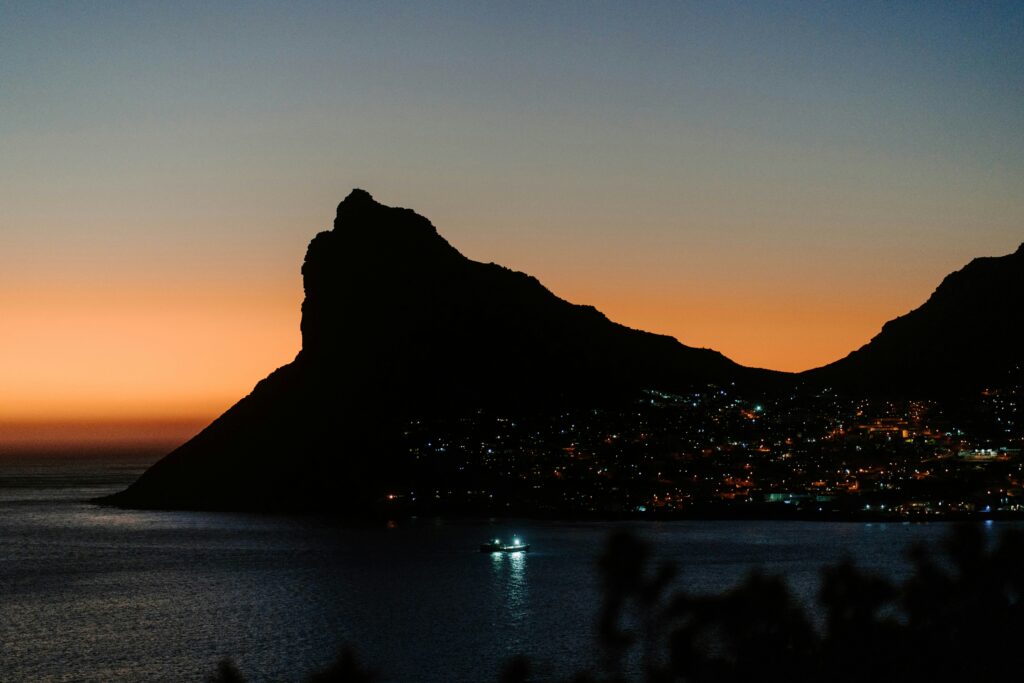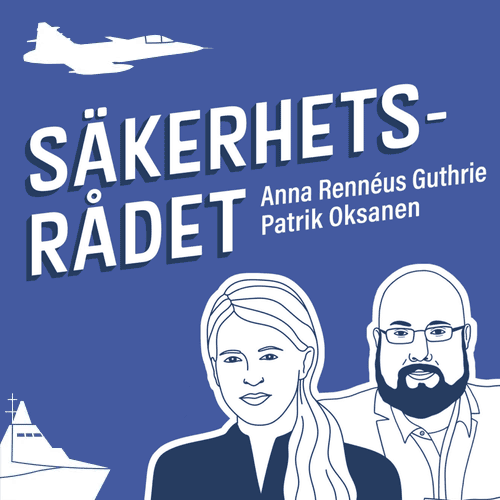There is a very real risk that after thirty years of ANC mismanagement the Government of National Unity will fail to fix the chronic dysfunctionality of the South African state. If the Government of National Unity fails, radical forces will likely take over — dismantling constitutional rights, destroying the economy and dragging South Africa into the totalitarian Sino-Russian orbit. This would be disastrous for South Africa, and bad for the world at large. The community of free nations has a self-interest, and a moral obligation, to promote effective governance in South Africa, writes Karl Lallerstedt.
For the first time in thirty years the African National Congress (ANC) lost its independent parliamentary majority, receiving 40 percent of the votes in the seventh free elections. President Cyril Ramaphosa responded by creating a coalition government, a ”Government of National Unity” (GNU). This coalition consists of ten parties, including the largest opposition party, the Democratic Alliance (DA), a liberal centre-right party that has a focus on defending constitutional rights, and which has delivered relatively effective governance in the Western Cape province. The DA received almost 21 percent of the votes, giving the ANC and DA a total 62percent of the votes, so they hardly need the eight junior coalition partners for a parliamentary majority. But the broad coalition is likely intended to reduce the political costs of jumping into bed with the ”white” opposition.
The GNU significantly does not include the third and fourth largest parties in South Africa, both led by former ANC politicians. The uMkhonto weSizwe Party (MKP), led by the convicted former President Jacob Zuma (14.58%) and the Economic Freedom Fighters (EFF) (9.52%) led by former ANC Youth leader Julius Malema. Both of these parties advocate large scale nationalisation programmes as well as the expropriation of white owned land without compensation. Furthermore, they want closer relations with countries like Russia and Cuba at the expense of democracies. Both parties use explicitly racist and divisive language targeting the white minority, and aspire to recast the constitutional order, which they view as a ”colonialist” construct.
Choosing the high road or the low road
The ANC stood between two main choices in order to govern effectively it needed majority support in parliament. To achieve this it needed to cooperate with at least one of the larger parties, ensuring over 50 percent parliamentary support. The MKP has stated that it would not cooperate with the ANC as long as it is run by Cyril Ramaphosa. That effectively left the choice between the Economic Freedom Fighters, that would pull the ANC towards a populist direction, or cooperating with the Democratic Alliance that would leave the ANC increasingly exposed to the populist rhetoric that it is in the pocket of minority interests — potentially increasing frictions within the ANC itself, but perhaps more crucially arming the MKP and EFF ahead of the next elections. The GNU appears to be a solution that will pull the ANC in a more centrist direction (effectively a coalition with the DA), whilst intending to minimise the associated political cost by presenting the government as a multiparty collective effort.
If Ramaphosa appears to have chosen the high road rather than the low road following this election that by no means implies that this is a permanent choice for the ANC. The party itself is split between more moderate and more radical elements. The choice of pursuing the more moderate route could also risk empowering the populists, both within and outside the party. There is a very real risk that the GNU is going to be a failure — considering the ANC’s track record the past decades.
To understand South Africa’s possible futures, we first need to understand the situation the country is in at the moment. That the ANC has underperformed the past thirty years is no small exaggeration. GDP per capita in US dollar terms has declined since 2011, the country has the world highest Gini-coefficient (a measure of economic inequality), the official unemployment rate has risen from 22.5 percent in 2008 to 32.9 percent in the first quarter of this year. During 2023, more than four out of ten aged 15-34 were neither in employment, education nor training. The number of days with rotational scheduled power cuts (load-shedding) increased from 5 in 2014 to an all-time high of 289 days in 2023. The country’s murder rate has been increasing since 2011, averaging 75 per day in 2023, totalling 27 368 murders during the year, exceeding the death toll of several wars.
If the ANC was unable to address the serious crises of unemployment, energy and crime over several electoral cycles — what are the odds that the GNU will noticeably improve it in five years? There are long term challenges with root causes that have no quick fixes. And if the GNU fails, there are populists waiting in the wings to step in and take over, dismantling the rule of law as well as driving an agenda of expropriation without compensation, nationalisation of key industries, and racial policies that could risk bringing about a collapse akin to Zimbabwe’s implosion in the 2000s.
Why does South Africa’s fate matter to the rest of the world?
During the Cold War, South Africa was strategically important enough for the United States to tolerate an apartheid regime that was loathed across the world. As soon as the Cold War was over, the patience for apartheid evaporated, ushering in multiracial democracy. The logical question to ask is thus: how could apartheid South Africa — a clear liability in America’s quest for moral global leadership over the Soviet Union— have been tolerated for over four decades? A part of the answer likely lies in South Africa’s role as a mining powerhouse.
Today South Africa is the world’s largest producer of the platina group of metals, as well as chrome. Russia happens to be the second biggest global producer of these very metals. South Africa is also a significant producer of diamonds and gold — areas where Russia is a world leading producer. The unwillingness to be dependent on Russia following the invasion of Ukraine makes South Africa’s role as a global supplier much more sensitive. If it was not enough that South Africa had an important role as a mineral supplier, its relationships with Russia and China raise further concerns.
Not only has South Africa failed to condemn the Russian invasion of Ukraine, but it also participated in a military exercise with Russia and China on the first anniversary of the invasion. Later that same year a sanctioned Russian vessel docked at the Simonstown naval base, and a sanctioned Russian cargo aircraft landed at Waterkloof airforce base — both resulting in US condemnation. Russia’s influence within the ANC stretches back in history, as the Soviet Union provided material support and trained thousands of ANC members during the Cold War.
China supported the ANC too, but more significantly it is today South Africa’s single biggest export market and by far its biggest supplier of imports, ensuring significant influence.
The free world’s self-interest and moral responsibility
Most of the world’s populations were enthusiastically supportive of the ANC’s struggle for democracy. In the case of Sweden, this manifested in significant economic support for the ANC, in fact Sweden was the single largest donor to the ANC during the liberation struggle. However, since the ANC took power Sweden has not significantly engaged itself in political developments in South Africa. In fact, the sale of (today mostly mothballed) JAS Gripen fighter aircraft is what has really stood out in the post-Apartheid relations between the two states.
South Africa is facing chronic economic, energy, and crime challenges that will not only inflict pain on its citizens, but also risk feeding radical political forces. If the populists take over in South Africa, not only will life become miserable for most South Africans, but internationally a strategically important supplier of minerals may come under greater Russian and Chinese influence.
It is clearly in the interest of the free world that South Africa develops in a positive trajectory. However, the risk that it will fail appears significant. Beyond encouraging the GNU to adopt wise policies, what can actually be done to support South Africa? Not only is large scale development aid politically hard to deliver, but there are also clearly other states in greater need than South Africa, and it is also unlikely that aid would address the root-causes of South Africa’s problems.
South Africa will need to solve its own problems, which have largely been due to poor governance. Global pressure on the GNU to act responsibly and effectively would be welcome. However, individual countries might be concerned that pressuring South Africa would push the country closer towards China — its largest trading partner. Yet, this view should be revised. Collectively the free world — the open societies in the world — trade much more with South Africa than China. To make a real difference, the free world should coordinate its efforts, present a united front to ensure strong external pressure on the GNU to implement effective and responsible governance. Programmes to strengthen South African democracy in the face of racialising populists should be supported, to enhance the odds that South Africa is not once again captured by authoritarian and race focused forces. If the rest of the world does nothing there is a very real risk that South Africa will fall off the ”Zimbabwe cliff”.
Karl Lallerstedt is senior analyst at the Swedish Defence Research Agency, but this article is a personal opinion piece
”Whenever the rainbow appears in the clouds, I will see it and remember the everlasting covenant between God and all living creatures of every kind on the earth.” Genesis 9:16.

